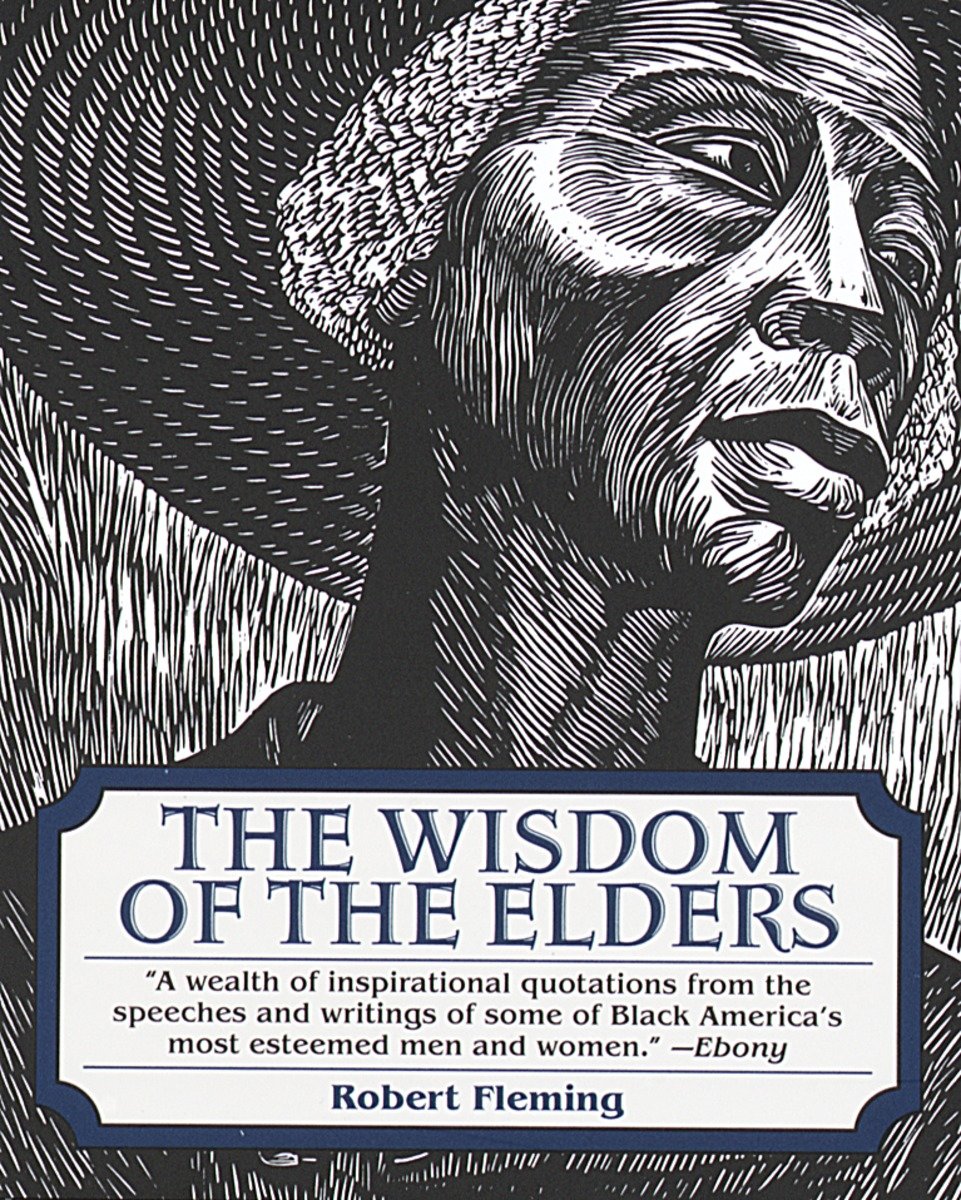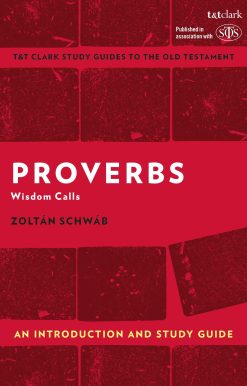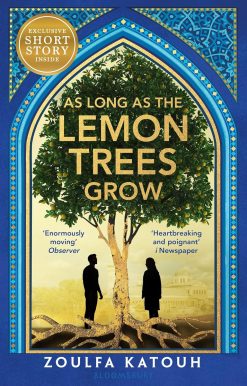The Wisdom of the Elders
| by |
|---|
19.00 JOD
Please allow 2 – 5 weeks for delivery of this item
Description
“Know whence you came. If you know whence you came, there is really no limit to where you can go.”–James BaldwinIn these troubled times, wisdom often seems in short supply. But as this magnificent volume reminds us, African Americans have been blessed with a precious legacy of wisdom, gained through long hard years of struggle by those who have gone before. Wisdom is the most hallowed gift born of experience and endurance.The life-affirming guidance in The Wisdom of the Elders has been gleaned from this bountiful harvest and includes some of the most electrifying and deeply moving writings and speeches ever produced. Here are the unedited works of such luminaries as Sojourner Truth, W. E. B. DuBois, Martin Luther King Jr., Elijah Muhammad, Lorraine Hansberry, Thurgood Marshall, Zora Neale Hurston, Adam Clayton Powell, Mary McLeod Bethune, Marcus Garvey, Barbara Jordan, Paul Robeson, Jean Toomer, and many others. The elders’ empowering messages and Robert Fleming’s interpretations offer us mother wit, cultural truths, and spiritual sustenance. These words challenge and inspire us to build on the best of our past, to insure our future.
Additional information
| Weight | 0.4284852 kg |
|---|---|
| Dimensions | 2.54 × 13.97 × 21.59 cm |
| by | |
| Format | Paperback |
| Language | |
| Publisher | |
| Year Published | 1997-11-25 |
| Imprint | |
| Publication City/Country | USA |
| ISBN 10 | 0345409752 |
| About The Author | Robert Fleming has written for Essence, Black Enterprise, The Source, and the New York Times, among others. A former award-winning reporter for the New York Daily News, he is the author of The African American Writer’s Handbook and The Wisdom of the Elders. His work was featured in Brown Sugar and he was the editor of After Hours. |
| Excerpt From Book | HISTORY REPEATS ITSELF Even in Congress, the white people, the dominant race, are beginning to throw in our teeth that enough has been done for us, and we must now take care of ourselves. I do not object to this. We are numerous enough, and all we need is to be intelligent enough to take care of ourselves. We are four millions, out of thirty millions who inhabit this country and we have rights as well as privileges to maintain and we must assert our manhood in their vindication. … With this force as a political element, and as laborers, producers and consumers, we are an element of strength and wealth too powerful to be ignored by the American people. All we need is a just appreciation of our own power and our own manhood…. I strike out boldly, as if born in a desert, and looking for civilization. I am groping about through this American forest of prejudice and proscription, determined to find some form of civilization where all men will be accepted for what they are worth. I demand nothing for our race because they are black. Even the wrongs of two hundred years I will overlook, although they entitle us to some consideration. Still, I hope the future will present no necessity for frequent reference to this matter. —P. B. S. Pinchback,11875 REFLECTION: Time doesn’t always heal all wounds. Sometimes history repeats itself. Back in 1875, Pinchback saw America tell its newly freed Black citizens that it had exhausted its financial resources on our rehabilitation. Defying Washington, the Southern states moved to scale back all the gains we’d made since the Civil War. Prominent Blacks denounced President Grant for not caring enough about the still-oppressed Negro, while the response from many Northern whites was that too much had been done already. In the late 1990s, countless social programs are getting the ax. The old battle cry to return to an oppressive past is being heard again. Some say enough has been done for us. According to one conservative congressman, it’s time for us to get out of the wagon and push. The need for vigilance to ensure that reactionaries and racists do not succeed in creating a new Jim Crow code based on gender, class, and race has never been greater. We cannot allow ourselves to be forced back to what and where we were. My time is now! History may repeat itself, but we can create a new and lasting resolution this time around. BLACK PRIDE Black people are saying a very powerful, complex, yet simple thing: “I am a man.” The struggle of racism all along has been a struggle to regain the essential manhood lost after the European expansion into the broader world and the attempt to justify the slave trade. This struggle has brought us to where we are now, standing on the “black and beautiful” plateau. From this position Black people will go into another stage, much higher and more meaningful for mankind. After reclaiming their own humanity, I think they will make a contribution toward the reclamation of the humanity of man. First, they will have to realize that in the kind of world we live in, being black and beautiful means very little unless we are also black and powerful. There is no way to succeed in the struggle against racism without power. That is a part of our new reality and our new mission. —John Henrik Clarke, 1970 REFLECTION: Today we possess the power of the vote. We earned this right with the blood and sacrifice of many of our people in a protracted struggle in both the North and South. And yet, many of us don’t even register to vote. We bemoan the state of affairs in the nation, but when the time comes to take an active hand in shaping our destiny, we step back into the shadows. This is why our voice in political matters is in danger of becoming a muffled whisper. It’s important to take pride in who we are, but that pride must be matched with action. Know the issues, not just those that affect you but also those that affect your neighbor. Those who would do us harm recoil at the thought of an informed electorate holding them accountable to a new standard. We must exercise the power of self-determination at the ballot box. Black pride and Black power are oppression’s worst enemies. I will vote in my own best interests and in the interests of my community COLLECTIVE EFFORT I did not get on that bus to get arrested, I got on the bus to go home. Getting arrested was one of the worst days in my life. It was not a happy experience. Since I have always been a strong believer in God, I knew that He was with me, and only He could get me through the next step. I had no idea that history was being made. I was just tired of giving in. Somehow, I felt that what I did was right by standing up to that bus driver. I did not think about the consequences. I knew that I could have been lynched, manhandled, or beaten when the police came. I chose not to move. When I made that decision, I knew that I had the strength of my ancestors with me. —Rosa Parks, 1994 REFLECTION: On December 1, 1955, in Montgomery, Alabama, Rosa Parks decided she was too tired to move to the back of the bus. This quiet seamstress violated a Jim Crow law by refusing to give up her seat and was put in jail. During her arrest, she wondered if the “colored” community would rally around her and support her act of courage. Her prayers were answered! Her community backed her and organized a bus boycott that lasted 381 days. Not only did it spark the Civil Rights Movement, it pressured the Supreme Court to render a decision proclaiming that segregation on all public transportation was illegal. We are an incredible people when we focus on a goal. We have enormous stamina and resilience. Across the nation today, a new agenda of fiscal expediency and social insensitivity is in place, imperiling the funds for many of the agencies supporting our most needy communities. The same persistence and organizational skills we exhibited in Montgomery must be used to meet this new menace. Monitor what is going on around you. Attend public hearings. Demand accountability. The collective force of our community can sustain us through any crisis. Together, we are unstoppable. POLITICS What the black man needs is a country and surroundings in harmony with his color and with respect for his manhood…. Thousands of white people in this country are ever and anon advising the colored people to keep out of politics, but they do not advise themselves. If the Negro is a man in keeping with other men, why should he be less concerned about politics than any one else? … For the Negro to stay out of politics is to level himself with a horse or a cow, which is no politician, and the Negro who does it proclaims his inability to take part in political affairs. If the Negro is to be a man, full and complete, he must take part in everything that belongs to manhood. If he omits a single duty, responsibility, or privilege, to that extent he is limited and incomplete. —Bishop Turner, 1896 REFLECTION: In late summer 1995, a white TV commentator, analyzing the possible field of presidential candidates for the upcoming election, quickly ruled out General Colin Powell as a viable contender. He noted that white America is not ready for a Black or female president, but would tolerate a symbolic run for the White House by either one. It was his belief that any attempt by either party to seriously advance a presidential candidate who was Black or female would be tantamount to conceding the race before it had even begun. While Powell initially basked in the media spotlight of his book tour, those spotlights turned to searchlights as the hardball presidential politics began. As African Americans, we cannot let others set the limits of our political involvement. We must be fearless and aggressive players in both the local and national political scene. From the statehouse to the White House, we must be active in shaping the politics of our nation. Only a fool allows others to set his limits. From voting in elections to serving as an elected official—political participation is my right and my responsibility THE POWER OF THE BALLOT It is unfair to expect a white administration to protect the Negro when the Negro has been stripped of his only power to support or check that administration. Neither education nor money will settle the question without the ballot; for a ballotless group cannot command the resources of public education, and a subject and helpless class by growing richer only endangers its life by becoming a more tempting prey to any powerful oppressor…. A disfranchised group could fare much better under hereditary independent rulers than under elective obligated officers. The very advantages of a democracy make disfranchisement therein the worst of tyrannies. —William Pickens, 1915 REFLECTION: In an all-Black community, one young man decided to take on the white political boss who had controlled the district like a fiefdom for decades. The boss made his usual campaign stops, dispensing a few favors and patronage jobs. Meanwhile, the young Black candidate effectively addressed the corruption of the boss’s administration, but was stunned at the lack of enthusiasm from the community. One voter told him: “You’re not going to get in so it would be a waste to vote for you.” Another said: “I’m voting for the white man because I know what he’s capable of. I don’t know nothing about you except a lot of talk.” The incumbent won by a landslide. The young Black man withdrew from politics, taking the loss as a confirmation of his racial inferiority. Six months into his new term, the old boss was indicted for embezzlement of federal and municipal funds—but he handpicked his successor. If political progress is to occur, the voiceless and the powerless must stifle the inner demons that whisper, “You don’t deserve anything more than what you already have.” I’m willing to make my voice heard in my community. There is no reason for me to accept powerlessness. |
Only logged in customers who have purchased this product may leave a review.
Related products
-
On backorder 2-5 Weeks to Arrive
10.99 JOD -
Low stock
17.99 JOD -
On backorder 2-5 Weeks to Arrive
8.99 JOD -
On backorder 2-5 Weeks to Arrive






Reviews
There are no reviews yet.